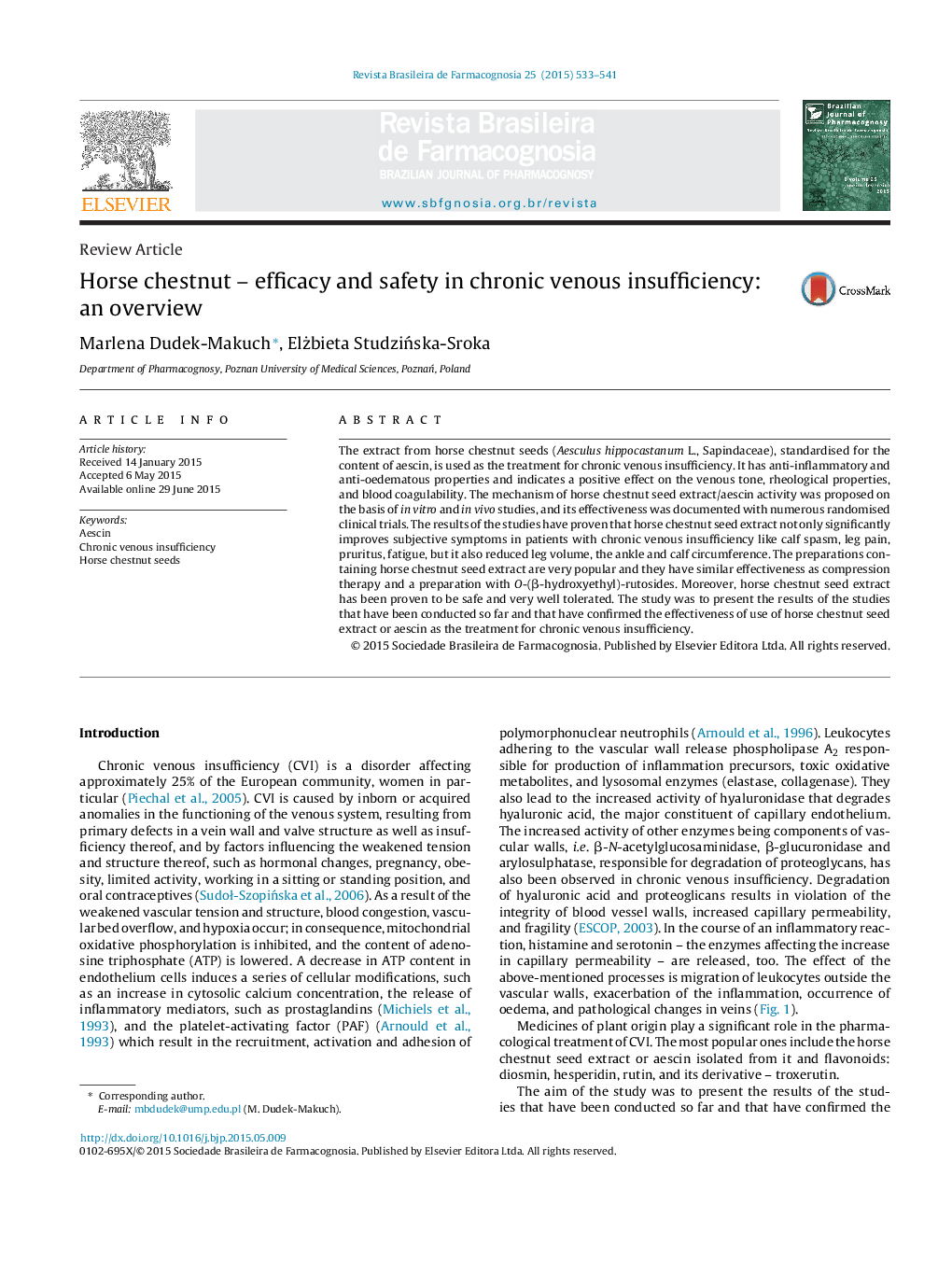| Article ID | Journal | Published Year | Pages | File Type |
|---|---|---|---|---|
| 2577626 | Revista Brasileira de Farmacognosia | 2015 | 9 Pages |
The extract from horse chestnut seeds (Aesculus hippocastanum L., Sapindaceae), standardised for the content of aescin, is used as the treatment for chronic venous insufficiency. It has anti-inflammatory and anti-oedematous properties and indicates a positive effect on the venous tone, rheological properties, and blood coagulability. The mechanism of horse chestnut seed extract/aescin activity was proposed on the basis of in vitro and in vivo studies, and its effectiveness was documented with numerous randomised clinical trials. The results of the studies have proven that horse chestnut seed extract not only significantly improves subjective symptoms in patients with chronic venous insufficiency like calf spasm, leg pain, pruritus, fatigue, but it also reduced leg volume, the ankle and calf circumference. The preparations containing horse chestnut seed extract are very popular and they have similar effectiveness as compression therapy and a preparation with O-(β-hydroxyethyl)-rutosides. Moreover, horse chestnut seed extract has been proven to be safe and very well tolerated. The study was to present the results of the studies that have been conducted so far and that have confirmed the effectiveness of use of horse chestnut seed extract or aescin as the treatment for chronic venous insufficiency.
Graphical abstractFigure optionsDownload full-size imageDownload as PowerPoint slide
